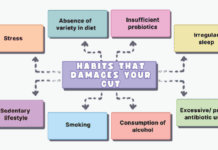
SERDANG: Universiti Putra Malaysia (UPM) researchers succeeded in producing ‘Medicated Wound Dressing’, a wound healing product from bitter gourd and rotten starfruit, a more effective and appropriate wound healing method especially for diabetic patients.
It has both antimicrobial and healing abilities, and can be used on chronic and traumatic wounds with reduced microbial infection.
Lead researcher, Prof Dr Rosfarizan Mohamad said, the Medicated Wound Dressing is able to heal wounds within 48 hours as opposed to more than 48 hours using several imported wound healing products.
According to her, the advantages of the Medicated Wound Dressing is that it can be applied directly on wound as healing gel, or prepared as another layer/film in bandage, or made into a spraying solution.
Rosfarizan who is also a lecturer at the Faculty of Biotechnology and Biomolecular Sciences said that the Medicated Wound Dressing innovation is a product based on the use of bacterial nanocellulose produced from the locally isolated bacterium from rotten fruits such as starfruit.
She said nanocellulose is then combined with synthesised nano material from bitter gourd to produce a new product known as bacterial nanocellulose silver nanoparticles composite or ‘green’ composite.
She said that the ‘green’ composite is a new and novel product for chronic wound healing or dressing.
“This innovation is eco-friendly as it uses green methods, is more economical because it uses fruit waste, and has crucial non-toxic antimicrobial characteristics,” she said.
According to her, this product was developed due to the high price of imported wound dressing products available in the market. Research began in 2016 and it has been patented under the protection of intellectual property.
Medicated Wound Dressing won the gold medal at the International Invention, Innovation & Technology Exhibition (ITEX) Malaysia 2019.
Other members of the research group are Dr Mohamad Ridzuan Yahya, Prof Dr Raha Abdul Rahim, Prof Madya Dr Wan Zuhainis Saad, Muhammad Izzuddin Zahimi, Dr Mona Moniri, Dr Amin Boroumandmoghaddam, Dr Sussan Azizi and Zulhimi Masri. – UPM









